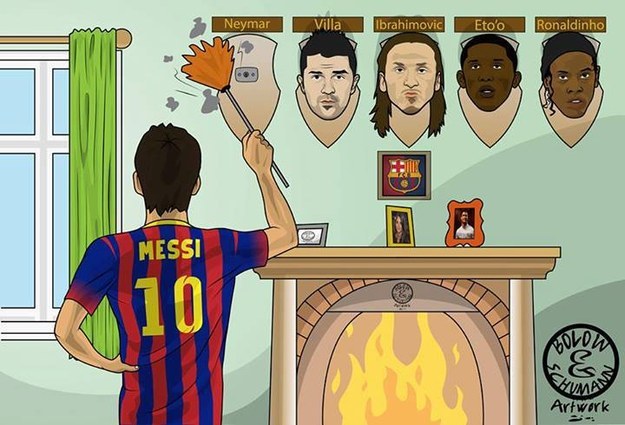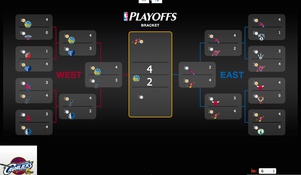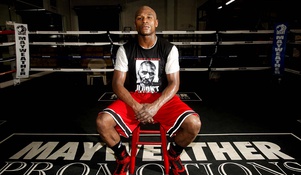Even the best of things must come to an end - what Barca Must do to return to dominance.

A shift in mentality is necessary in order for the pride of Catalunya to return to its dominant ways.
By the standards of all but a few of the world's biggest footballs clubs, FC Barcelona enjoyed a pretty successful season. A loss to Real Madrid in the Copa del Rey final, painful as it may have been, isn't cause for shame. A second-place finish in La Liga, at least at first glance, is not what Barca fans hope for, but isn't condemnable. Though, a quarter-final exit out of the Champions League is not something socios have grown accustomed to, having reached the semi-finals the last five years in a row and having won Europe's premiere footballing competition three out of the last eight seasons.
But this is Barca. Descent seasons aren't good enough. Not when your competing against Guardiola in Germany, Mourinho and City's money in England, two formidable giants in the Spanish capital, and... history. Yes, history. Very recently Barca teams which featured largely the same group of players as on today's roster was deemed arguably the best club team ever assembled. And with good reason. They won an unprecedented number of trophies, while breaking just about every record in the books. And they did in such fashion and with such grace that forced the world to marvel at the skills of Messi, Xavi, Iniesta, and the rest of the Blaugrana. But those times seem light years away now.
Since the departure of Pep Guardiola, Barca has been trying to tweak its team with enough fresh faces to keep the team hungry, while maintaing the same Barca philosophy instituted into the club by Johan Cryuff in the early 90s and perfected by his followers, Guardiola and Villanova, in the recent years. This philosophy evolves around playing attacking, two-touch football, dominating possession of the ball at all cost, and walking the ball into the opponent's net whenever possible. This philosophy is fantastic – it is only possible at Barca (notice that despite Barca's recent enormous success other European teams, haven't even attempted to emulate it) because of the continuous supply line of young talent produced at la Masia. There have been, and will be, books published about Guardiola's Barcelona – it was a perfect mix of tactics (a system of triangles designed so that there was always a man open) and execution (players raised in Barcelona, in love with the club, capable of passing the ball with such precision so that the rotation on the ball is minimal in order to make the control for the next man that much easier). But here is the bottom line – they can't pull it off any more.
The current situation is a little bit like, what I imagine is, watching your eldest child go off to college – you're so proud, so thankful for everything you've been through together, and it is so hard to let him go. But you know you must, because it's the best thing for everyone. Barca doesn't need to abandon its philosophy altogether. Not by any stretch – that process would be very difficult and would likely leave the team without an identity and open to more vulnerability.
But there is a number of serious changes in the club's mentality that must take place if Barca doesn't want to see the reflections of the smiling faces of Ronaldo and Bale, or David Villa and Diego Costa, for that matter, on trophies, which they so desire.
Here is what must Barca must do:
1. Admit that the competition has gotten better. Significantly.
Barca's executives, management, and surely players have always known that their competition is very strong. But the success which started in 2009 has given them the confidence that is isn't strong enough. After they proved to themselves, and everyone watching, that they are indeed the best team in the world, they've always viewed the competition as inferior – not on our level. This allowed for a sense of comfort, control, complacency at the club at all levels. Executives allowed themselves to make absolutely abhorrent transfer decisions (Villa, Ibrahimovic, Toure, and the most absurd of all, Chygrynskiy) without any responsibility, because the team was good enough to put together a good season in spite of these decisions. The sense of relaxation was evident in the coaching dugout as well. When Pep left, Tito seemed to be the obvious choice as a replacement if the overall direction of the club was to be continued. But he was sick. Very seriously sick. Yet we believed, that even with the head coach and a starting defender battling cancer, we'll pull through, and we did. Thus allowing us to relax even more. The missing sense of urgency was also evident on the pitch. Any Barca fan would have noticed, that last and this season, the pressure wasn't as intense, the passes weren't as accurate, the shots not as ferocious.
In the meantime came absolute superstardom. Any man who puts on a Barca footballing shirt when he goes to work is idolized, if not worshiped. This in itself, is not a bad thing, of course. Michael Jordan, for instance, arguably the most adored athlete of all time, maintained professionalism and utmost effort until the very end of his playing career. At Barca this translated to lackadaisical play, dips in form, looking to referees for bailouts, and falling into the trap that we can always “turn on that switch”. This was most evident in last year's CL quarter-final against AC Milan, in which Barca lost the first leg 2-0 away, after a less than impressive performance, only to dominate the second leg and deliver a 4-0 result that was reminiscent of the best of times at the club. But that was last year, and against a Milan side that, let's face it, is no longer considered a top tier club in Europe. The same approach failed us this year. Madrid made loud and smart moves, Bayern is capable of building a dynasty in Germany, and that other team in Madrid – yeah, they are seriously good. This season was a wake-up call. The team must use it to rejuvenate itself - to feel the pain of losing, to build up a desire to win again. “We don't change things at Barcelona” the players and coaches would holler at the journalists after losses -well, lads, you no longer have the option not to.
(Pique and Shakira the night of the title-decider against Atletico)
2. Somebody good must leave.
By that I don't mean Puyol, who has not been used in a couple of years, Song, who is not an integral part of the team, or Valdes, who has announced his departure a long time ago. I believe we need a departure of, what we call, a “core” player. Barca's core, its heart, the backbone of the team has long been considered: Messi, Xavi, Iniesta, Busquets, Pique. This group has been complemented by a series of players who fit well into the Barca philosophy but aren't considered as crucial: Neymar, Pedro, Alves, Fabregas, Alba, Mascherano, Sanchez. Lastly, Barca uses, utility players, such as Adriano or Song, or youngsters Bartra, Roberto, Tello, etc. Recently the transfers away from the club have been taking place among the second, but most often the third group of players and this year again, we're hearing Tello and Song's names as main candidates to be sold. Febragas' name has also been mentioned in the papers, as a potential departure. But after the long and exasperating transfer saga that preceded his return to Camp Nou, mixed with Xavi's inevitable and evident decline, it doesn't seem to be the right thing to do and allowing him grow into “the next Xavi” is still a very real possibility. Dani Alves', who admittedly does progressively weirder things on Twitter, is another potential candidate for departure, with the sale to PSG supposedly already having gone through. I admit Dani Alves has slightly declined and I admit he can be inconsistent, but I believe he is still the best right back in the world. Thus, if I don't believe Barca can replace him with a better player, I believe he can stay. But I don't think he will. And here is why.
Football Club Barcelona discriminates. Here, I'd like to remind everyone that despite all of the connotations we are used to, the word “discrimination” isn't necessarily a negative word. And for a long time, Barca's discrimination served it right and was praised. Barca favors home-grown, Catalan players. It is part of their tradition, footballing philosophy, financial independence, and marketing strategy. And it has worked incredibly well in recent years. But not always. The most blatant example of Barca's discriminatory practices was the case of Yaya Toure. The Ivorian was competing for the holding midfielder position, crucial in Guardiola's system, with Sergio Busquets - a Catalan La Masia product whom Guardiola coached in Barcelona B and personally called up along with Pedro. Toure was at the time, and probably still is today, a better player. He got shipped to Manchester City for a mere 30 million Euros. Busquets went on to become a truly great player. But Yaya is sublime.
Returning to present day, I believe the club will act similarly with Dani Alves, who is an easy target. His departure won't help Barca. It will weaken it. I think a core player has to be shipped for two reasons: to generate revenue with a higher transfer fee (Barca has been practically giving players away lately – Ibra's transfer lost about 50 million Euros after one year, Villa was gifted to a rival for somewhere between 2 and 5 million) and to decrease the aura of invincibility that those players enjoy. No one should be untouchable and somebody needs to be made an example of that. I think it has to be either Xavi or Busquets. Saying that hurts me just as much as any other die-hard Barca fan, and I know many consider this blasphemy, but we must agree that changes need to happen. Xavi has been in decline for a couple of years. He produces solid matches pretty consistently, but he doesn't win them like he did under Guardiola. Iniesta's genius can still dominate football matches and leave the defenders dumbfounded. Xavi's game racks up the passing and possession stats which always look good on the match report, but increasingly infrequently leads to actual game-winning plays. My choice would be Busquets, who is still a great player, but he isn't as reliable as he used to be and Barca could really cash in on him and generate funds for a fresh face to replace him (Arturo Vidal, for instance) or sure up the defense, which will clearly take a larger sum than Barca is willing to admit. There is another reason why I'd sell Busquets – diving. Barca prides itself on being mes que un club (more than a club). It stands for values on and off the pitch. Busquets' diving and crying is almost as blatant as Pepe's and that's not a standard anyone at Barca should be compared to. I know that's a knock on Alves too, but I consider him more difficult to replace.
3. Messidependencia is the problem – but it is not what you think it is.
Messidependencia is a term that surfaces on two occasions – when Barca loses and when Messi struggles. Or when they coincide with one another. The idea behind the term is that when Messi doesn't play well, the club has a hard time getting Ws. Of course there is some truth to the notion, but Messi is the best player in the world. Why wouldn't you rely on him to play well? Moreover, even when he's not the Ballon d'Or winner, he still racks up a tally impressive enough to win titles. And lastly, he's a striker. He needs good service like all other strikers. Granted that he's so good that in the past it was sometimes enough to get him the ball, get out of his way, and watch him waltz around hapless defenders and pass the ball into the corner of the net. But this brings me back to my initial point – the competition has gotten better - now, it is not Barca that always relies on Messi – it is Messi that most often relies on Barca to help him fulfill his potential.
-Messidependencia is not an on-field problem, it's an off-field problem. The presence of the enormous genius of Messi, who has proven to be capable of shattering just about every record in the record books, dominates Barca's executive and coaching decisions. Here is how:
- There is a stubborn insistence on playing the 169cm Argentine as a center forward, though his position has been coined a “false nine” because of his tendency to drop deep and attack defenders with his speed and control. This was Guardiola's vision which succeeded for many years. But again, it is time to adapt and tweak the strategy, at least sometimes, at least a little. Messi can still rack up memorable three or four goal outings in La Liga against inferior competition to keep his status as world's best. But trouble is that if this is currently Barca's only mode, only gear, then good teams, with stellar defenses can now prepare for Messi. They know exactly what's coming and they do whatever is necessary to stop him. Moreover, I truly believe that this is an attempt to utilize a footballing strategy for revenue building. Having the world's best player, an iconic star, who continually breaks goal scoring records in your shirt helps bring your brand, attract sponsors etc. I hate to be redundant, but competition has gotten better! We can't do that any more.
- The previous point has forced Barca's hand on the transfer market. Because Messi has to play in the middle, as he is supposedly unhappy every time he's fielded somewhere else and reportedly shows it to his coach with a lack of effort as was the case in the CL encounter with Atletico, Barca must buy and sell players with Messi's stubbornness in mind. Starting with the departure of Ronaldinho (who Pep felt had to give up the “number 10” role of the team's superstar, Eto (who had to vacate the center forward spot), followed by Ibrahimovic and Villa (who were continually forced out of position), all of these superstars were sold by the Blaugrana, which entailed financial losses.
- Messi can hold Barca hostage as he dominates all negotiations between the two sides. Here is the bottom line: Messi won four Ballon d'Or awards in a row, while helping Barca rack up team triumphs. He then produced a significantly worse season, lost the world's most prestigious award to his teary arch rival Ronaldo, failed to deliver any major trophies, to be ultimately booed by the Camp Nou faithful during the final match of the season... and got a raise.
In what other multi-million dollar organization would such decisions be justifiable? Well, the Los Angeles Lakers and New York Yankees have fallen into the same trap with their icons Kobe Bryant and Derek Jeter, respectively, but if you ask me, if the only reason for your raise to a whopping 20 million Euros net is that your main rival got a raise, then maybe something is not right. The list of scapegoats to take the fall for these failures has already begun with the firing of Tata Martino. We'll see who will be next to bid farewell to the beautiful city of Barcelona.
Whoever it is, I remain skeptical that this season's departures will instill a proper sense of urgency into the players. I sometimes question if Barca's lofty values haven't taken a back seat to its politics, revenue generation, or image building.
But I'm hopeful. I'm hopeful that Luis Enrique will bring back tittles. I hope that he will bring poise and charisma back to the Barca dugout and that his style will attract world class players. But to do this, he better bring courage. The audacity to hold top tier talent accountable, to demand effort, and to have the guts to treat everybody on the squad the same way – no matter if it's Tello or Messi. Even the geniuses that run out onto the hollowed ground of Camp Nou every weekend can't produce the results we expect without cohesion and a belief in a common goal and philosophy. It is much easier to achieve this camaraderie when the players feel equally important.
Even the best of things must come to an end. Barca may have put together the greatest team of all time. And it was a joy to watch. But it is time to swallow our pride and to rebuild. Time to lick our wounds and recharge our batteries. To come back hungrier and stronger. And to reclaim what's ours. 'Cause this is Barca, damn it, where greatness is not only thrived for, but expected.


